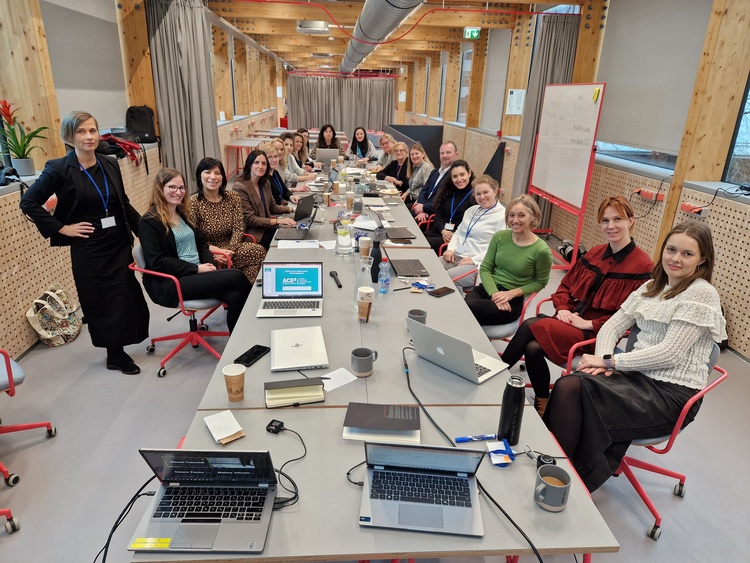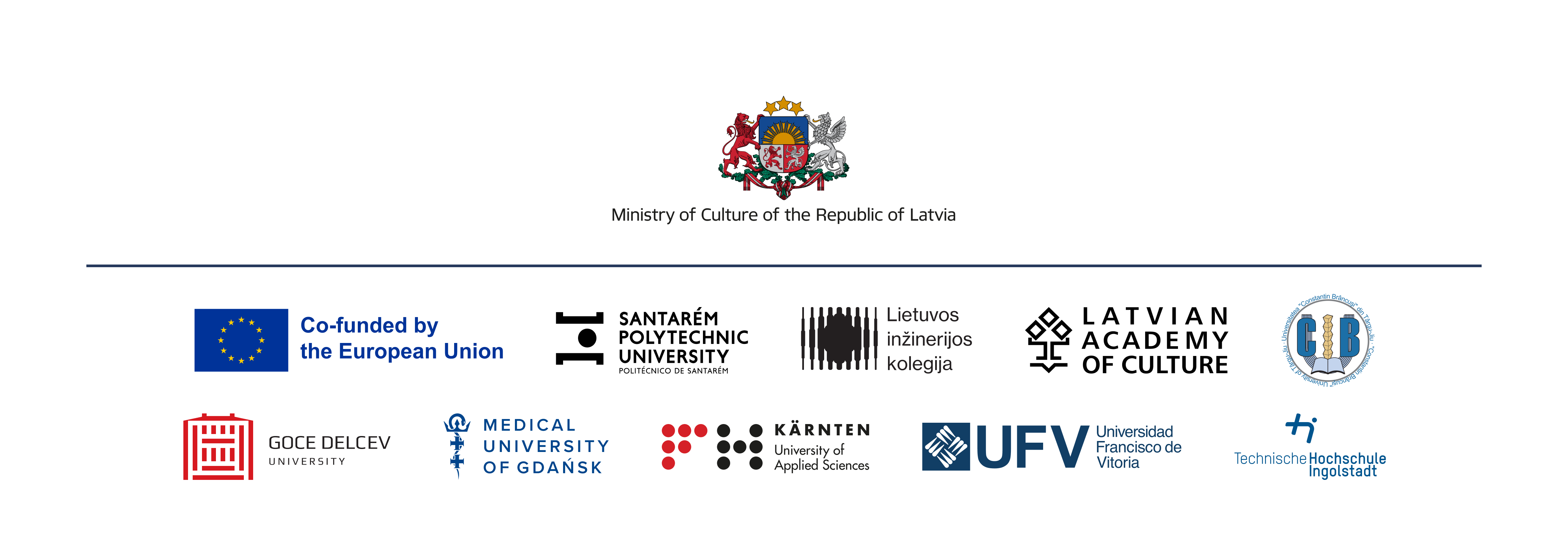
The First ACE2EU SPACE Centre In-Person Meeting: A Milestone for Collaboration and Growth
From January 20th to 22nd, the SPACE Centre (Societal Partnerships and Cultural Engagement Centre) team gathered for its first in-person meeting at the Latvian Academy of Culture (LAC). The event began with the official opening of the SPACE Centre on the first day, followed by an intensive workshop the next day, where participants focused on planning the Centre’s initiatives and activities for the coming years.
The workshop focused on establishing the management structure for the Centre’s key working areas and activities planned over the next four years. Together, we worked on an operational plan to ensure the SPACE Centre’s success and gathered valuable insights from our colleagues. At the heart of our mission, the SPACE Centre stands as a place where partnerships build future literacy, inspiring collaboration and societal transformation across our alliance.
Inspiring Initiatives:
· Kaleidoscope Culture Festival: Presented by the SPACE Centre leader, Ieva Zemīte from the Latvian Academy of Culture, this annual event aims to celebrate multiculturalism, multilingualism, and inclusion across our alliance of partner universities.
· Social Impactors: Co-leader Svetlana Buko and her team from Carinthia University of Applied Sciences introduced this initiative, which focuses on addressing socio-economic challenges while fostering cultural understanding and societal engagement. As Svetlana emphasized, “Space is about partnerships, and Social Impactors is one of the Centre's cornerstones. We must build the muscle to create impact and meaningful outcomes.”
· Student Volunteer Programme: Co-leader Paula Pinto and her team from Santarém Polytechnic University showcased a program designed to empower students to tackle societal challenges head-on.
· Culture Traineeship Programme for Staff: Co-leader Alessia Tressoldi and her team from Francisco de Vitoria University shared their vision of mobility training which combines in-person and online sessions to promote cultural understanding, inclusion strategies, and enhanced cultural sensitivity among staff.
On the final day, a sightseeing tour of Riga allowed our team to explore the city’s rich history and vibrant culture, including the Art Nouveau architecture, giving a deeper connection to the local heritage.
________________________________________________________________
The LAC oversees the SPACE Centre initiative, a significant element of the project, aimed at promoting societal engagement and cultural understanding. The SPACE Centre will foster collaboration with external stakeholders, enhance inclusivity, and
strengthen European identity through cultural exchange. Its goal is to drive sustainable societal transformation and forge stronger connections between universities and the wider community. The SPACE Centre’s activities are directed towards implementing social solutions in areas such as well-being, inclusion, multiculturalism, respect, and gender equality, as well as creating a common cultural platform that is significant for exchanging diverse cultural experiences and expertise among alliance partners.
The European university alliance ACE2-EU aims to strengthen and transform institutional cooperation among its members in higher education, research, innovation, and community service. Within the project, LAC together with 8 other European universities will work jointly on developing student-focused and challenge-based learning approaches, creating new interdisciplinary study programs, stimulating joint research and innovation activities, promoting entrepreneurship, and supporting the research community.
The SPACE Centre will be implemented in collaboration with partners from Santarém Polytechnic University, Carinthia University of Applied Sciences, Francisco de Vitoria University, Medical University of Gdańsk, University “Goce Delčev”, Technical University Ingolstadt of Applied Sciences, Kaunas University of Applied Engineering Sciences, and University Constantin Brâncuși Târgu-Jiu.
The project is co-financed by the Ministry of Culture of the Republic of Latvia.
Funded by the European Union. Views and opinions expressed are however those of the author(s) only and do not necessarily reflect those of the European Union or the European Education and Culture Executive Agency (EACEA). Neither the European Union nor EACEA can be held responsible for them. Project 101177596.
For more information about the ACE2-EU alliance and planned activities, visit: https://ace-eu.ipsantarem.pt/

